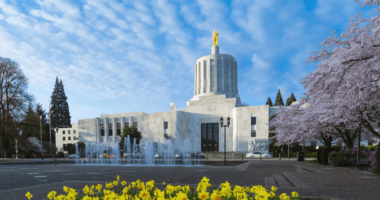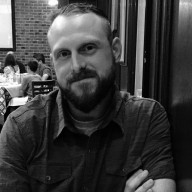Oregon Legislature To Perform Comprehensive Gambling Study

For the first time in nearly three decades, Oregon’s legislature will take a comprehensive look at the state of gambling in the state. Leaders of both chambers of the body recently confirmed that an Oregon gaming study would happen.
The announcement came after a meeting with tribal gaming leaders and a legislative session that saw little movement on several gambling-related bills. It also comes at a time when several aspects of gaming in Oregon seem at a crossroads.
Oregon gaming study a legislative priority
The last time the legislature assessed gaming in Oregon, Bill Clinton was the president of the United States, MySpace was all the rage on the Internet, and “Don’t Speak” by No Doubt was the top song. For accuracy’s sake, the year was 1996.
To say gambling in the state was different then is an understatement of monumental proportions. Even in terms of brick-and-mortar tribal casinos, the scene was smaller. Additionally, the prospect of iGaming was but a fantasy akin to flying cars.
Now, Oregonians gamble online with regularity and do so legally. That includes not only betting on sporting events with the Oregon Lottery< /strong> via DraftKings but also pari-mutuel wagering on horse races plus social casinos.
That’s part of the reason why the legislature is looking at the issue. To that effect, Nigel Jaquiss of the Williamette Week has a quote from Oregon House Speaker Dan Rayfield.
“The scope of legal gambling has expanded and changed in major ways in recent years,” Rayfield stated.
“Americans spent more money on gambling in 2021 than in any previous year. We must be mindful of the wide-ranging impacts of this growing industry, including on sovereign tribal governments and Oregonians struggling with addiction. This is an important time to study how other states are approaching this new era.”
Beyond simply gaining a better understanding of gaming in Oregon, there’s a lot at stake. The findings of this study could steer policy and, therefore, the expansion for the next three decades.
What the Oregon study could look at specifically
For some insight into what the main issues could be, just look at the bills that came across the desks in the legislature during the past session. Such an inspection points to the hot-button topics clearly. Those are:
- How much funding the state should provide for problem gambling treatment
- The legality of historical horse racing (HHR) machines
- Whether DraftKings should be able to take bets on college sports
- Whether to allow wagering on greyhound races
On all of these issues, there are interested stakeholders. For example, DraftKings and the Oregon Lottery stand to benefit from online wagering on college sports. At the same time, tribal casinos in the state with retail sportsbooks currently enjoy exclusivity in that niche.
Expanding the options for DraftKings could take action away from them. Balancing commercial and tribal interests is a common theme.
Oregon HHR is the hottest issue of the day
The divide between commercial and tribal interests within Oregon’s borders becomes greater in the context of HHR. This is probably the most loaded issue in the state currently.
During the past session, there was a bill that would have strictly defined an allowable HHR machine. It would have effectively made most of the modern machines impermissible. In the bill’s language, an allowable machine would have essentially been just a viewing console for races instead of the slot machine replicants that many HHR businesses around the nation frequently use.
Meanwhile, the Oregon Racing Commission denied a license application for the Flying Lark involving HHR gaming. That denial came after the state’s justice department issued an opinion that the plans at the Flying Lark represented illegal gambling.
Shortly after the license denial, the connected Grants Pass Downs canceled its 2022 commercial meet. The track’s owner, Travis Boersma, cited the license denial as the reason behind the decision.
Tribal casino operators in the state pushed for the HHR bill. They argued that HHR gaming without such parameters would hurt interest in their businesses and represented a threat to their exclusivity for casino gaming in Oregon.
At the same time, Boersma argued that the HHR gaming was necessary to maintain horse racing in the state. A study alone probably won’t locate a middle ground, if one exists, between these competing interests. It should make the positions clearer, though.
One thing that’s clear is that both commercial and tribal gaming in the state can benefit from more responsible gambling. The members of a new committee will assess that in the state as well.
Better programs for Oregon problem gambling treatment
According to KTVZ, an eight-member committee will conduct this Oregon gaming study. Each chamber of the legislature will have four representatives. Oregon Sen. Sara Gelser Blouin and Rep. John Lively will co-chair the committee. The other six members are:
- Sen. Dick Anderson
- Sen. Lynn Findley
- Sen. Chris Gorsek
- Rep. Andrea Valderrama
- Rep. Kim Wallan
- Rep. Boomer Wright
The committee will use the study to make recommendations on how to enhance funding and programs for addiction prevention and treatment. Doing so will involve evaluating existing resources.
Currently, the Oregon Lottery devotes one percent of its revenue to funding problem gambling services. Most recently, that came to $7.5 million for a calendar year. Tribal casino operators in the state also have their own programs.
It’s uncertain exactly when Oregonians should expect the completion of this study. It’s worth watching, though. The findings could hold a lot of sway over policy for the immediate future.








